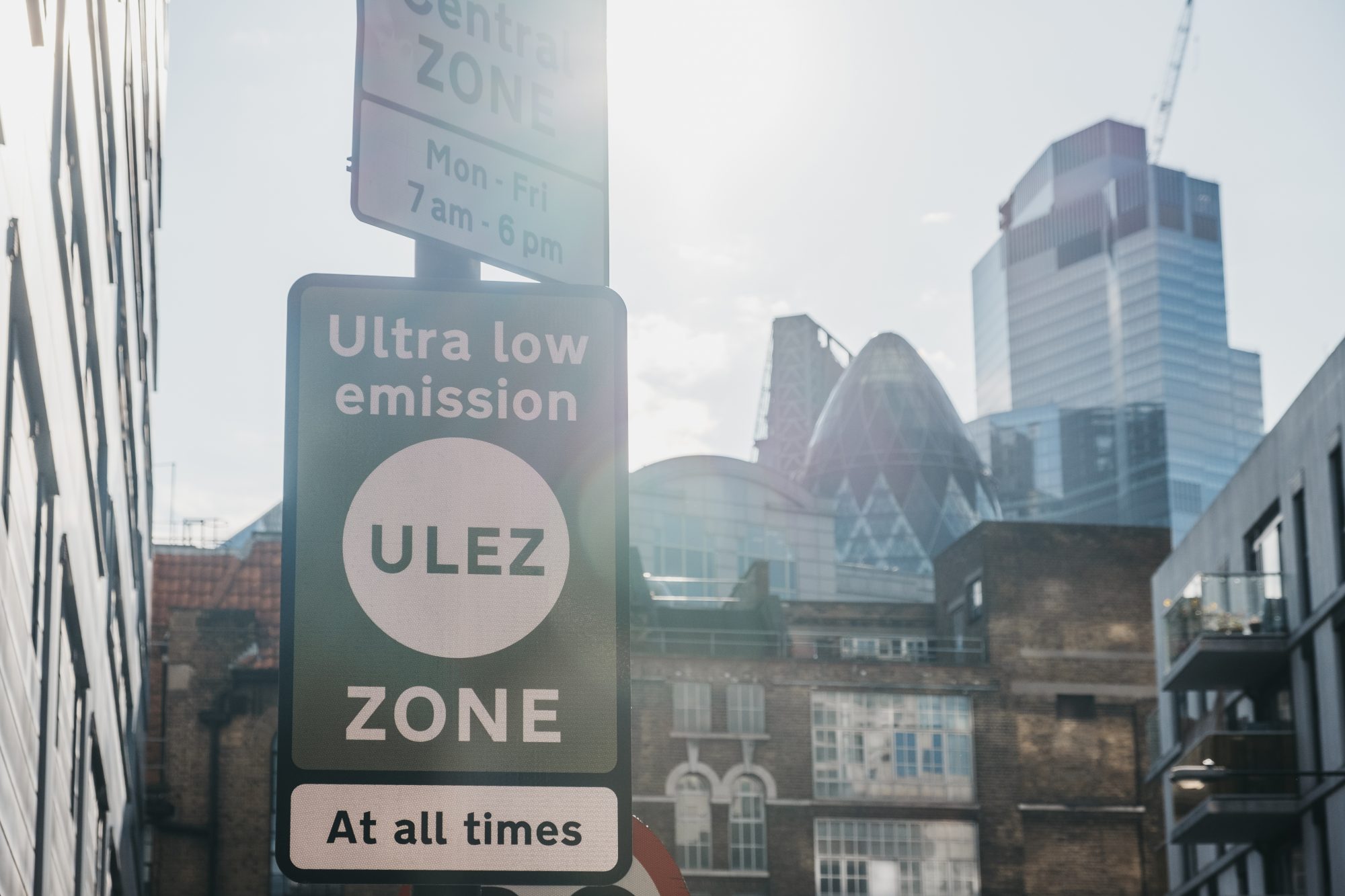ULEZ isn’t the only way to reduce city emissions. Other anti-pollution options for Government and Councils to explore include Emission Based Parking and more
Urban areas are hotspots for pollution. In between, vehicle emissions and inner-city congestion, we often find that metropolitan places have the worst track record for air quality. Transport for London, collecting data and insights on travel, finds that “the volume of road transport emissions in London makes it one of the most polluted places in the UK”.
Concerning reports have surfaced from independent study on UK air quality. For at least the past 3 years, London’s annual average PM2.5 level has exceeded the World Health Organisation’s target limit for air particulate pollution. To tackle these challenges, tangible action must be taken reduce long-term impacts on our planet and in our cities – and quickly.
In the UK, Government schemes and incentives have been vital in decarbonising cities, such as ULEZ (Ultra Low Emission Zone).
However, with its financial impact for businesses and low-income families, the controversy surrounding ULEZ is stunting the growth of support for green strategy. With further expansion of ULEZ planned to commence in August, it’s important to remember that there are other anti-pollution options for Government and Councils to explore.
What options are there for a green transport strategy?
Alongside ULEZ, Emissions Based Parking (EBP) is already being implemented in London. Data demonstrates that EBP is being leveraged with great success in metropolitan areas, as Councils are being targeted with managing the health of residents.
EBP schemes enable policy makers to levy a surcharge on the most polluting vehicles when they pay for parking, leading to vehicle emissions reduction as a result. Such schemes can be introduced flexibly, depending on the requirements of each area, which is a feature fixed infrastructure schemes lack.

At a time when budgets are stretched, EBP presents a creative way to stay cost efficient while maintaining a focus on reducing pollution, through motorist behaviour changes. For Councils and Local Authorities looking to affect positive change, the goal is clear: invest in effective, eco-conscious mobility and parking solutions, such as Emission Based Parking, which has been setting positive precedents in London since 2017.
How EBP makes tangible improvements on transport
Emission Based Parking uses technology to target higher polluting vehicles, specifically when they park, while incentivising those who are driving clean vehicles. Low-emission vehicles, such as electric or hybrid vehicles, can pay less to park whilst the most polluting diesel vehicles pay more.
While serving a practical function, parking is also about offering the best ecosystem for encouraging use of vehicles which minimise environmental impact. With over 1 in 10 new registered cars in the UK electric and sales continuing to rise, it is a clear indicator that the need is shifting, and behavioural trends favour sustainability; electric vehicles are key to the future of transport.
Emission Based Parking not only offers motorists with more environmentally friendly cars a cheaper rate, but it will also encourage greater EV adoption amongst motorists who may be concerned about making the switch, which overall will make the surrounding area more environmentally friendly and improve air quality over time.
How Emission Based Parking creates more liveable cities
Transport has accounted for more than a quarter of the UK’s total greenhouse gases since 2016, reaching 34% in 2022. As the capital, and the largest city in the UK, London must be leaders in reducing carbon emissions and setting new environmental precedents.
Emission Based Parking is already having tangible positive effects on air quality. In Westminster, diesel usage dropped by 16% after RingGo EBP launched and it has reduced polluting vehicles in the London Borough of Hammersmith & Fulham by 9%. This data highlights how powerful a lever parking can be to influence consumer attitudes and behaviour.
We can see that the data advocates for schemes like this. We’re seeing important progress over the course of months and years, which isn’t only designed for box-ticking, but also has great and significant positive benefits for local residents.
Making Net Zero accessible to motorists on the road
By implementing Emission Based Parking technology, the parking industry is able to meet and match policy. EBP is a great example of a transport scheme as it’s simple and accessible, with an efficient path to market and implementation.
As the UK considers sustainability and overarching goals to make UK towns and cities more liveable and healthier, green, cost-effective and inclusive initiatives will be leaned on to help deliver better urban air quality and cleaner spaces.
This piece was written and provided by Peter O’Driscoll, Managing Director of RingGo











